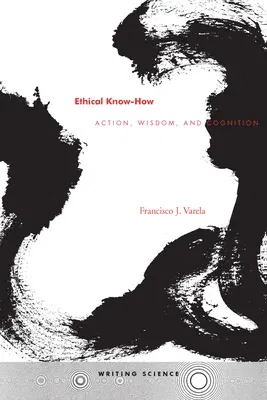How can science be brought to connect with experience? This book
addresses two of the most challenging problems facing contemporary
neurobiology and cognitive science: first, understanding how we
unconsciously execute habitual actions as a result of neurological and
cognitive processes that are not formal actions of conscious judgment
but part of a habitual nexus of systematic self-organization; second,
creating an ethics adequate to our present awareness that there is no
such thing as a transcendental self, a stable subject, or a soul.
In earlier modes of cognitive science, cognition was conceptualized
according to a model of representation and abstract reasoning. In the
realm of ethics, this corresponded to the philosophical tenet that to do
what is ethical is to do what corresponds to an abstract set of rules.
By contrast to this computationalism, the author places central emphasis
on what he terms "enaction"--cognition as the ability to negotiate
embodied, everyday living in a world that is inseparable from our
sensory-motor capacities.
Apart from his researches in cognitive science, the bodies of thought
that enable Varela to make this link are phenomenology and two
representatives of what he calls the "wisdom traditions" Confucian
ethics and Buddhist epistemology. From the Confucian tradition, he draws
upon the Mencius to propose an ethics of praxis, one in which ethical
action is conceived as a project of being rather than as a system of
judgment, less a matter of rules that are universally applicable than a
goal of expertise, sagehood.
The Buddhist contribution to his project encompasses "the embodiment of
the void" and the "pragmatics of a virtual self." How does a belief
system that does not posit a unitary self or subject conceive the living
of an "I"? In summation, the author proposes an ethics founded on
"savoir faire" that is a practice of transformation based on a constant
recognition of the "virtual" nature of ourselves in the actual
operations of our mental lives.

